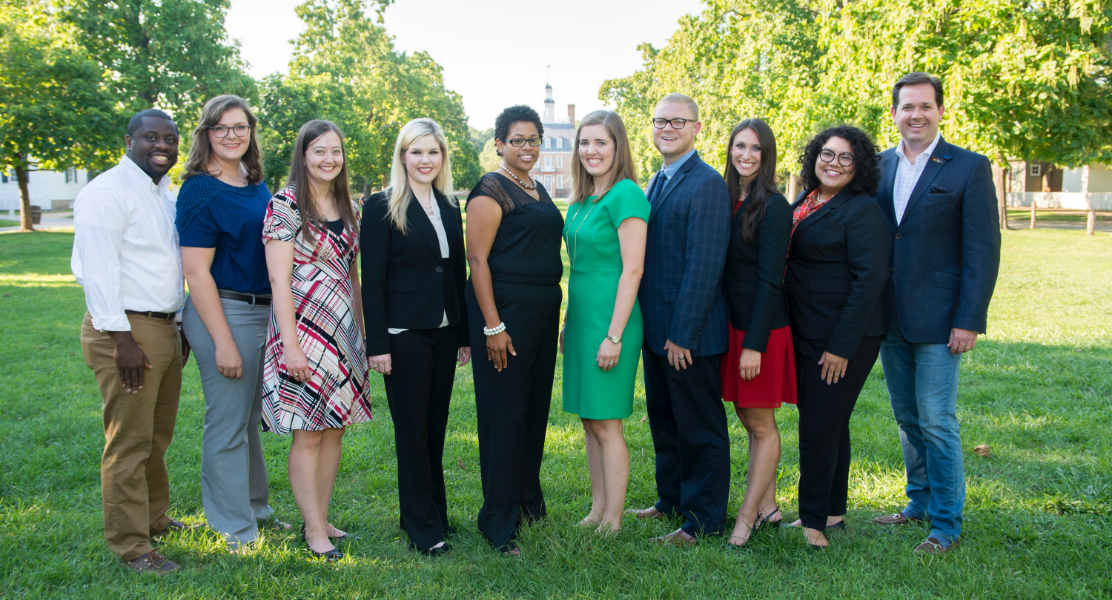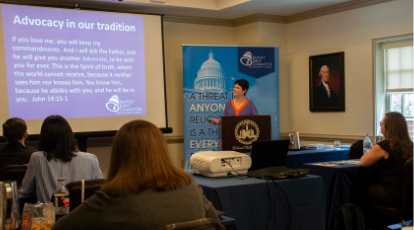THE BJC FELLOWS
2015 BJC Fellows
BJC launched the inaugural BJC Fellows Program in 2015, offering young professionals the opportunity to deepen their historical, theological and legal understanding of religious liberty and develop skills to advocate for the cause throughout their careers.
Ten BJC Fellows were selected from diverse educational, professional and religious backgrounds and attended the 2015 BJC Fellows Seminar in Colonial Williamsburg.They are committed to being advocates for religious liberty in their houses of worship and communities. Hear about their experiences.
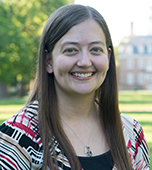
If we understand ourselves and our fellow travelers on this journey, fellow Baptist or not, to be created in the image of a God who is sovereign and free, then how else can we understand . . .
Lauren McDuffie
the journey of faith except as one in which we are free to participate as we feel called? And if this is the case, how much more important is it for us to defend the right of all to express their faith in a way that is authentic to them, even if it does not look the same as the faith that is authentic to us?
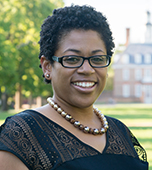
Quite honestly, I only imagined the logical and practical outcomes of learning more about the Baptist Joint Committee for Religious Liberty. I never imagined that my Day One . . .
Sabrina Dent
experience would cause me to wrestle with who I am spiritually; and, as a woman of color who still seeks to tell her story unapologetically in a society that seldom listens. . . . My engagement with staff, lecturers, and other Fellows afforded me the opportunity to become aware of my own strengths, challenges, and areas for growth.
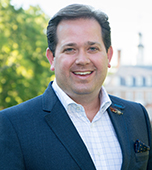
The fight for religious liberty is inextricably linked to the cause of the American Revolution and enduring legacy among Baptists dating back to the 16th century. While many regard Locke . . .
Adam Wright
as having initially influenced the idea of religious liberty, BJC Executive Director Brent Walker pointed out during one of his lectures the influence Roger Williams, one of our Baptist forerunners, had in initially casting light on the topic of religious liberty, thus predating Locke’s often regarded seminal thinking on the topic of religious freedom.
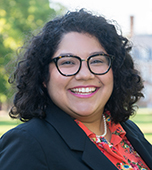
In seminary, I learned about how important it was to avoid proof-texting Scripture. That is, we cannot pick and choose the passages of Scripture that fit what we’re trying to prove. . . .
Alyssa Aldape
just like with building a theological case, we pick and choose quotes from the Framers and use them to proclaim the United States was founded as a Christian nation. Religious liberty has been hijacked and used to mean “religious liberty just for Protestants.”
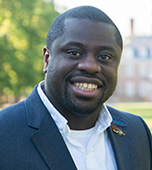
[Gowan] Pamphlet’s life teaches us that Baptist values and social justice go back to the beginning of our shared life in America. Pamphlet first began to think seriously about freedom . . .
Elijah Zehyoue
through his interactions with Baptist preachers and leaders. . . . As Baptists today, we need to remember this history of Pamphlet, John Leland and the other Baptists who advocated broadly and specifically for social justice.
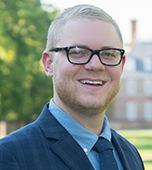
My voice was represented in hearing about John Leland’s disdain for the idea of “tolerance.” I’ve always felt a little pretentious saying that I “tolerate” someone else — that . . .
Kyle Tubbs
tolerance was a lower ideal to be reached compared to acceptance, encouragement, and/or empowerment. Who am I to put myself on a pedestal and look down on someone else? I want to seek mutual cooperation with those different than me to make this world a better place rather than merely “tolerate” them.
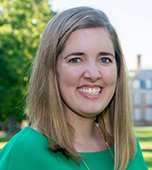
Our culture loves to polarize issues and make things appear very black and white, and in many ways the history of religious liberty has not gone unscathed. . . . Professor Michael Meyerson . . .
Katie Ferguson Murray
outlined the diversity of opinions among the Framers in regards to religious liberty. It is only after looking at the wide array of beliefs and deep conversations that resulted from these values that the complexity of the issue could be understood and better appreciated. Meyerson said devout religious belief is not opposed to strong religious freedom. His words challenge those polarizing narratives that are so dominant today. The Framers did not have to be atheists to support religious freedom, and for many it was their faith that led them to their eventual conclusions on the issue. In the same vein, devoutness of faith is not challenged by a strong belief in and advocacy for religious freedom for all. In fact, it is out of the desire for our own religious freedoms that we fight for that right for others.

During BJC General Counsel Holly Hollman’s presentation, she said it takes a confident Christian to realize what you believe. So many times Christians want to force their beliefs . . .
Danielle Ashley
on other people, but this actually pushes people further away. Coercive prayer in a government-related setting often times excludes people. This was particularly eye-opening for me, and it actually made my faith stronger. It made me realize that I am confident enough about my faith that if there was no more prayer before a legislative meeting, town meeting, or in school, it would not interfere with my confidence in God or my faith in God. True separation of church and state places responsibility for one’s own faith on the individual. The interesting facet of legislative-type prayer is that it is usually not individualized, personalized prayer. My prayers to God through Jesus look much differently than a legislative-type prayer, and I am glad for that.

I learned a lot during the session on modern religious liberty law, and enjoyed discussing current controversies with the rest of the group. During that conversation, one item we discussed . . .
Caitlyn Cook Furr
was prayer in schools, and the impact of the Equal Access Act. As a group, all seemed to agree that administrator-led prayer is inappropriate in any public school, no matter the makeup of the student body. School administrators in small or rural settings sometimes assume that everyone attending the school has the same religious beliefs and, therefore, prayer is acceptable. BJC General Counsel Holly Hollman said that when religious assumptions are made, even in a homogeneous area, it undermines the religious liberty of everyone involved. This conversation was a good reminder not to make assumptions about the religious beliefs of others, and reinforced some of my views regarding the necessity of separation of church and state.
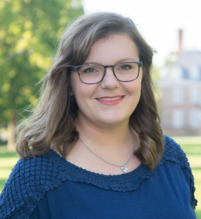
Because BJC Fellow Kristen Harris-Bridwell is a visual media specialist, she was given a special assignment during the BJC Fellows Seminar. She captured images showcasing what it was like to work, study, debate, and bond with others in the program.
Apply to be a BJC Fellow!
There is no religious requirement for the program; those with six years or less experience in their profession are eligible.

